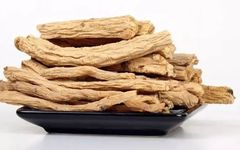Codonopsis (Dang Shen)
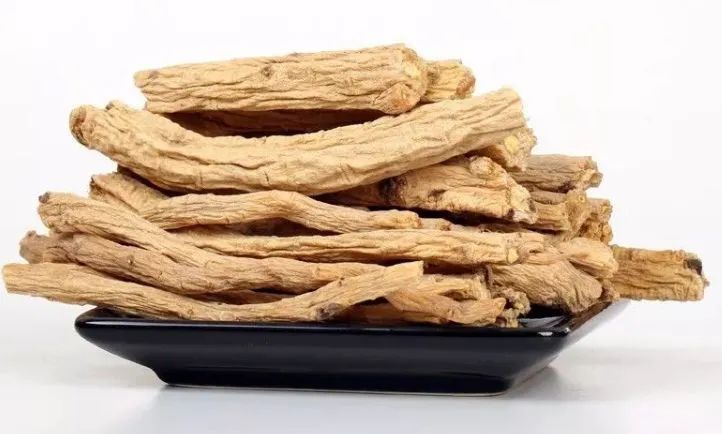
Codonopsis is the dried root of the plant Codonopsis pilosula, also known as Dang Shen or Chinese bellflower. It is primarily produced in Gansu, Qinghai, Shanxi, and Shaanxi provinces, and was included in the list of food-medicine homologous substances in 2018.This herb was first recorded in the Supplement to the Compendium of Materia Medica, Codonopsis has a sweet flavor and a neutral nature.It enters the spleen and lung meridians.Its functions include tonifying the spleen and lung, nourishing blood, and generating fluids. It is mainly used to treat conditions such as spleen and stomach deficiency, deficiency of both qi and blood, weak cough and asthma, internal heat and thirst, blood deficiency and sallow complexion, palpitations and insomnia, fatigue, poor appetite, loose stools, and chronic diarrhea with prolapse.
【Materia Medica Records】
Compendium of Materia Medica states: “It treats lung deficiency and can benefit lung qi.”
Essentials of Medicinal Properties states: “It can tonify the spleen and lung, benefit qi, and generate fluids.”
Correct Interpretation of Materia Medica states: “It effectively tonifies the spleen, nourishes the stomach, moistens the lung, and generates fluids… It strengthens the spleen without causing agitation, nourishes the stomach yin without causing stagnation, moistens the lung without being cold, and nourishes blood without being overly rich.”
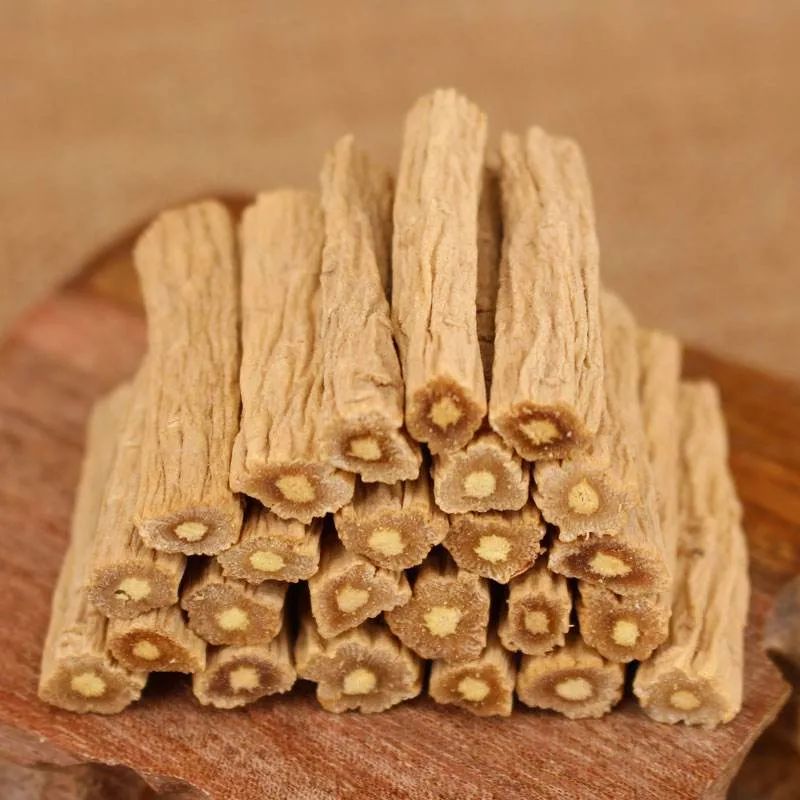
【Clinical Applications】1. Spleen and Lung Qi Deficiency Syndrome Treats symptoms caused by spleen qi deficiency such as fatigue, poor appetite, and vomiting or diarrhea, often combined with Bai Zhu (Atractylodes) and Fu Ling (Poria) to tonify qi, strengthen the spleen, and eliminate dampness; treats cough and shortness of breath due to lung qi deficiency, often combined with Huang Qi (Astragalus) and Ge Jie (Gecko) to tonify lung qi and stop cough.2. Dual Injury of Qi and Fluids Syndrome Treats mild cases of dual injury of qi and fluids, having a similar but weaker effect than Ren Shen (Ginseng) in tonifying qi and generating fluids, often combined with Mai Dong (Ophiopogon) and Wu Wei Zi (Schisandra) to nourish yin and generate fluids.3. Dual Deficiency of Qi and Blood Syndrome Treats symptoms of dual deficiency of qi and blood such as pale or sallow complexion, dizziness, palpitations, and fatigue, often combined with Bai Zhu (Atractylodes) and Dang Gui (Angelica) to enhance the effects of tonifying qi and blood.【Modern Applications】This herb is often combined with Zhi Huang (Roasted Astragalus) and Shan Yao (Chinese Yam) to treat chronic atrophic gastritis, with symptoms of discomfort in the stomach area, bloating, and poor appetite due to spleen deficiency and qi stagnation, such as in stomach nourishing granules; combined with Huang Qi (Astragalus), Bu Gu Zhi (Psoralea), Bai Zhu (Atractylodes), and Gan Jiang (Dried Ginger) to treat chronic colitis, ulcerative colitis, and intestinal dysfunction, with symptoms of irregular bowel movements, early morning diarrhea, mucus in stools, accompanied by abdominal bloating and discomfort, indicating spleen and kidney yang deficiency, such as in intestinal health tablets.Dietary TherapyThere are many dietary methods using Codonopsis, which can be consumed alone or combined with other ingredients. When Codonopsis is prepared with other herbs or foods, it not only provides delicious flavors but also medicinal benefits, helping to prevent and treat diseases, greatly benefiting the body. Below are several commonly used Codonopsis recipes for selection.
1. Codonopsis and Red Date Sticky Rice
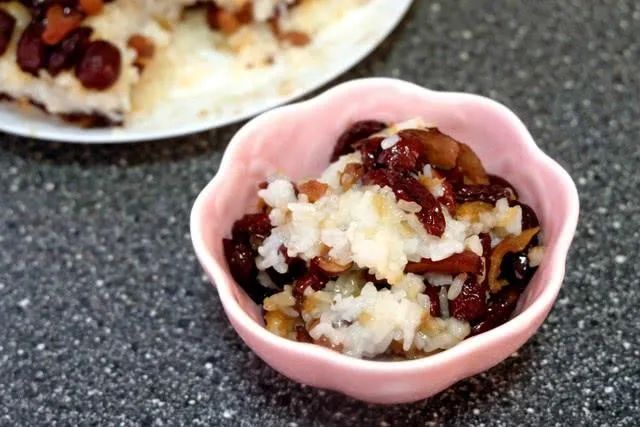
Ingredients:10 grams of Codonopsis, 10 red dates, 150 grams of glutinous rice, and an appropriate amount of brown sugar.
Method:First, wash the Codonopsis and red dates, then boil them in water to extract the juice. Steam the glutinous rice until cooked, then invert it into a bowl, pour the Codonopsis and red date juice over it, and add an appropriate amount of brown sugar. Consume this dish every morning and evening.
Effects:Suitable for symptoms of spleen and stomach deficiency, poor appetite, vomiting, and fatigue.
2. Codonopsis and Angelica Stewed Chicken
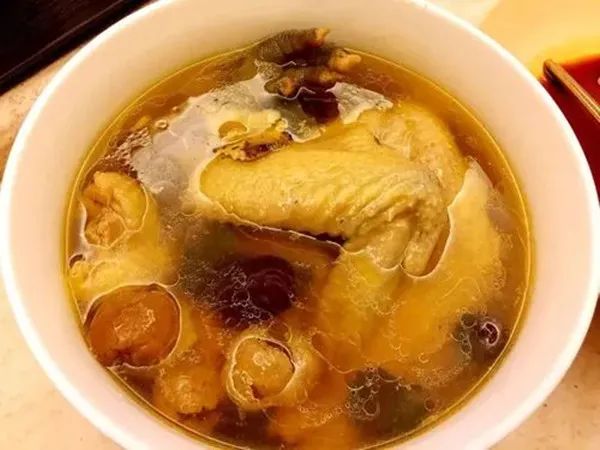
Ingredients:30 grams of Codonopsis, 15 grams of Angelica, 5 grams of Tian Qi (Notoginseng), 1 chicken (about 1000 grams), and appropriate amounts of ginger, scallions, rice wine, salt, and pepper.
Method:Wash the Codonopsis and Angelica, crush the Tian Qi; clean the chicken after slaughtering, place the three herbs inside the chicken along with ginger, scallions, rice wine, and salt, then place everything in a clay pot and stew over low heat until the chicken is tender, adding pepper for seasoning before serving.
Effects:This recipe has the effects of tonifying qi and blood, strengthening the body, and is suitable for patients with chronic illness, anemia, fatigue, and poor appetite. It is beneficial for middle-aged and elderly individuals to maintain health and strength.
3. Codonopsis and Ganoderma Lung Soup
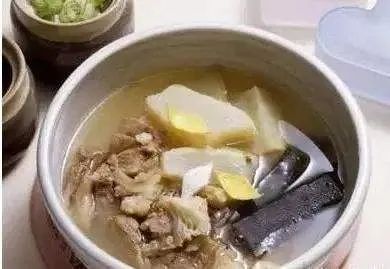
Ingredients:25 grams of Codonopsis, 50 grams of purple Ganoderma, 2 slices of ginger, 6 honey dates, and 1 pair of pig lungs, with a little salt.
Method:Wash the Codonopsis and purple Ganoderma. Clean the pig lungs until white, cut into pieces, and boil in water for 5 minutes. In a pot, add all ingredients with enough water and simmer over medium heat for about 1 hour, seasoning with salt before serving.
Effects:It tonifies middle qi, strengthens the body, enhances disease resistance, and reduces respiratory diseases. It is effective for those with fatigue, pale complexion, bronchitis, and asthma, as well as those prone to colds.
4. Red Date, Codonopsis, and Longan Tea

Ingredients:30 grams of Codonopsis, 10 red dates, 8 longan flesh, and 2 small slices of ginger.
Method:Wash the Codonopsis and red dates, soak them in water for 20 minutes, wash the longan, and slice the ginger. Add all ingredients to a soup pot, then add 1500 milliliters of water (about 6 bowls), bring to a boil, then simmer on low heat for 45 minutes. After cooking, store in a thermos and drink as tea.
Effects:It tonifies the middle, strengthens the spleen, benefits qi, calms the mind, nourishes blood, and generates fluids, with a relatively mild nourishing effect. It is suitable for those needing nourishment but with weak spleen and stomach.However, while Codonopsis has a mild nature, it is not better in larger quantities or longer durations. It can be taken for a fixed period of about 1-2 times a week for 1-2 months, but should not be taken indefinitely. If there are no diseases, using Codonopsis as a health supplement requires only 3-5 grams; those with excessive qi and blood, healthy young adults, children, pregnant, and breastfeeding women should use it cautiously. It is contraindicated for those with qi stagnation or excessive liver fire.Additionally, Codonopsis should not be taken simultaneously with radishes or tea.■Product Information【Standards】Chinese Pharmacopoeia 2020 Edition Part One【Properties and Meridians】Sweet, neutral. Enters the spleen and lung meridians.【Functions and Indications】Strengthens the spleen and lung, nourishes blood, and generates fluids. Used for spleen and lung qi deficiency, poor appetite, fatigue, cough, palpitations, thirst due to fluid damage, and internal heat thirst.【Specification】5g/bag【Shelf Life】Three years【Dosage】9-30g.【Caution】Not suitable for use with Li Lu (Veratrum). 【Storage】Store in a ventilated, dry place to prevent pests.
【Manufacturer】Hebei Shangchi Herbal Medicine Co., Ltd.
【Address】868 Dong’an Jiao Highway, Donghe Village, Anguo City, Baoding, Hebei Province
【Sales Phone】13241025193/13910533459 Manager Chi
 【Source of Content】Guangdong University of Traditional Chinese Medicine
【Source of Content】Guangdong University of Traditional Chinese Medicine

